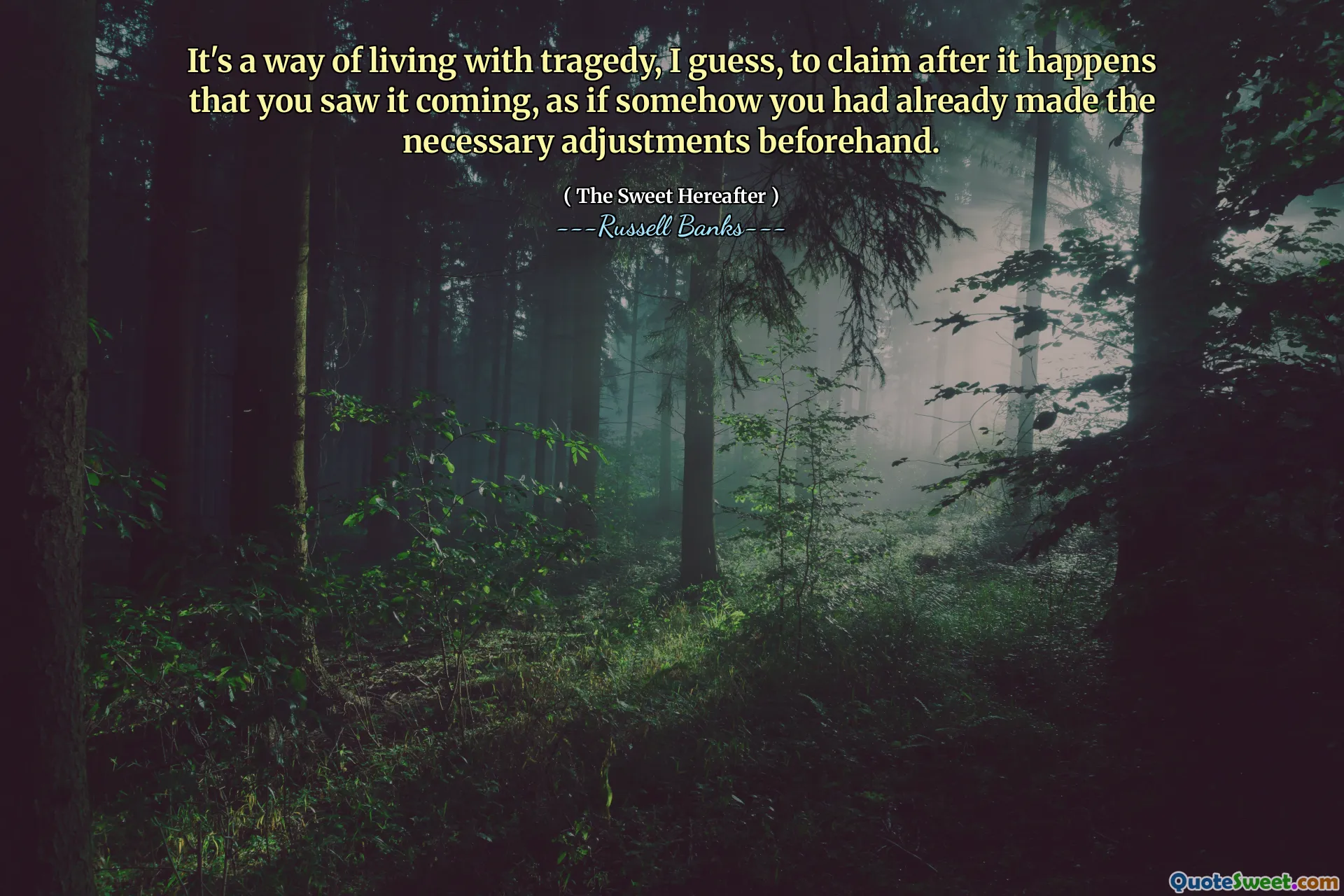
It's a way of living with tragedy, I guess, to claim after it happens that you saw it coming, as if somehow you had already made the necessary adjustments beforehand.
This quote from ---Russell Banks---'s The Sweet Hereafter encapsulates a common human response to tragedy: the retrospective assertion that we anticipated the event all along. This psychological phenomenon, sometimes termed 'hindsight bias,' serves as a coping mechanism that allows individuals to impose a sense of order and predictability on an inherently chaotic and painful experience. By claiming prior knowledge or foresight, people attempt to reconcile their suffering with a narrative that offers control or meaning, thereby softening the emotional blow.
The quote invites reflection on how we transport ourselves mentally after facing loss or trauma. The idea that "you saw it coming" is not necessarily a truthful recollection but rather a defense against vulnerability — shielding us from the randomness of misfortune. It feels more bearable to think that we were prepared or that the tragedy was somehow inevitable and thus less arbitrary. This mechanism can also mask our regrets, guilt, or feelings of powerlessness.
Moreover, the phrase "as if somehow you had already made the necessary adjustments beforehand" highlights an illusion of preparedness. It's an acknowledgment that, in reality, we rarely have the luxury of foresight or readiness when calamity strikes. We improvise, grieve, and adapt in the aftermath, but the comfort of preemptive adjustment is largely a constructed narrative.
Ultimately, this quote underscores the complexity of human resilience and vulnerability, reflecting on the stories we tell ourselves to survive trauma. It challenges us to recognize this coping strategy without judgment, fostering a deeper understanding of the emotional processes that follow tragedy and the importance of empathy toward ourselves and others during such times.






